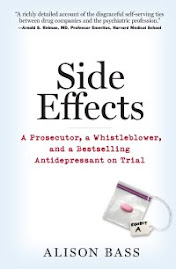Mere days after several bloggers (including myself) spotlighted the conflicts of interest among medical societies criticizing the new mammography guidelines, Senator Charles Grassley (R-Iowa) has asked these groups (and quite a few others) for information about the financial backing they get from the pharmaceutical, medical device and insurance industries.
As my blog noted, the most vociferous critics of the new breast screening guidelines included top officers at organizations like the American College of Radiology and the American Cancer Society, which receive substantial funding from the makers of mammography machines, including Johnson & Johnson, Siemens and Hologic. Grassley's inquiry includes these two prominent medical societies along with 31 others, according to the The New York Times.
Grassley's latest inquiry comes amidst the growing realization that many medical associations receive substantial funding from industry and that this often undisclosed largesse sways such groups to lobby on industry's behalf. Consider, as another example, the influence that the pharmaceutical industry has long held over the nation's largest advocacy group for people with mental illness, NAMI. As I was the first to report in Side Effects, drug industry donations to NAMI accounted for at least half of this group's annual revenues, a fact that NAMI never bothered to share with its constituents. A few months after my book was released, Grassley's team asked NAMI for a detailed accounting of its corporate funding, and NAMI publicly acknowledged that more than two-thirds of its donations do indeed come from the pharmaceutical industry.
I look forward to similar eye-opening disclosures now that Grassley, the ranking Republican on the Senate Finance Committee has turned his spotlight onto other groups like the American Medical Society, the American Cancer Society, the American Academy of Orthopedic Surgeons and the American Academy of Family Physicians (which was in the headlines recently because of all the money it's getting from Coca Cola); you can find the full list of groups Grassley is gunning for here.
This is scary stuff. We rely on these physician groups for unbiased and informed medical judgments about all aspects of our health care. After all, if you can't trust the American Cancer Society and the American College of Radiology when it comes to the truth about the benefits and risks of mammography screening, who can you trust? Certainly not your doctors, who get most of their information from the medical societies they belong to. This is a scary state of affairs indeed.
Subscribe to:
Post Comments (Atom)



No comments:
Post a Comment